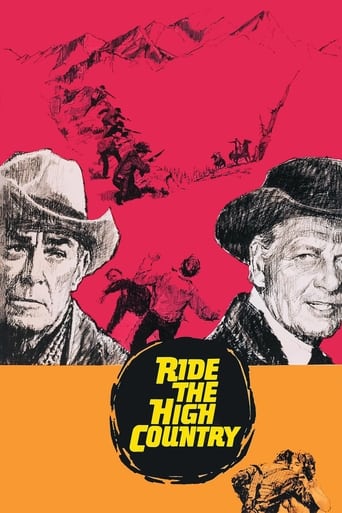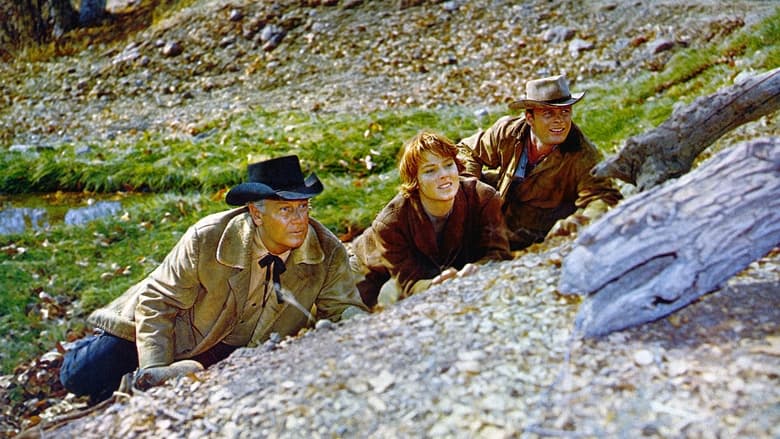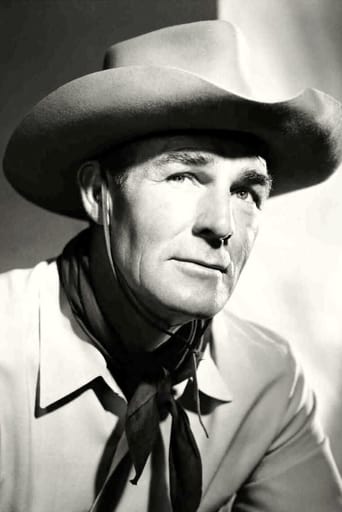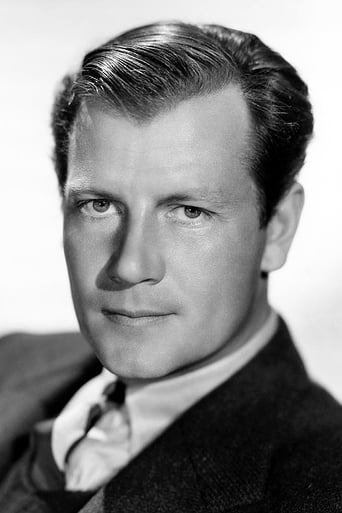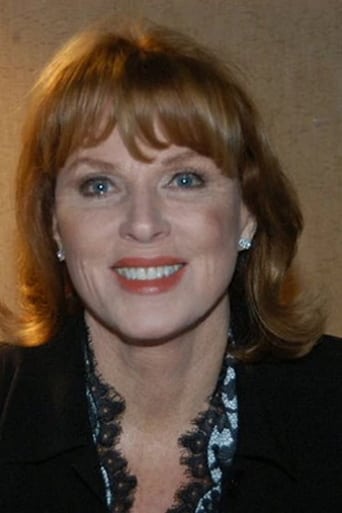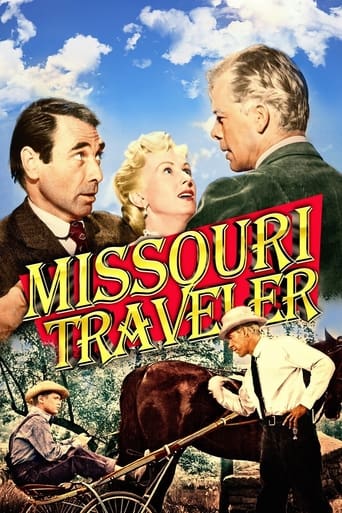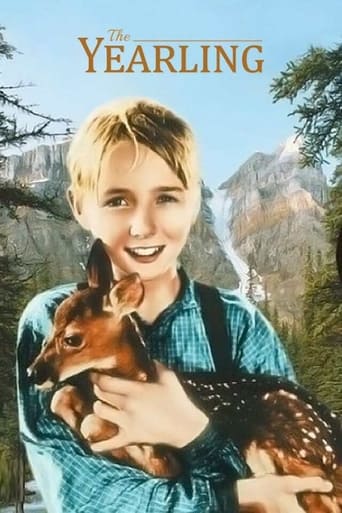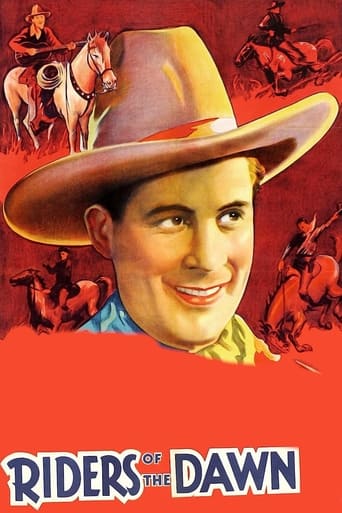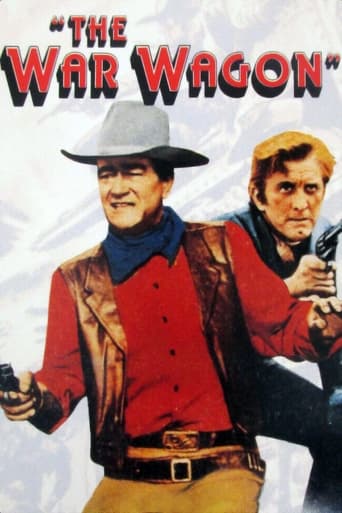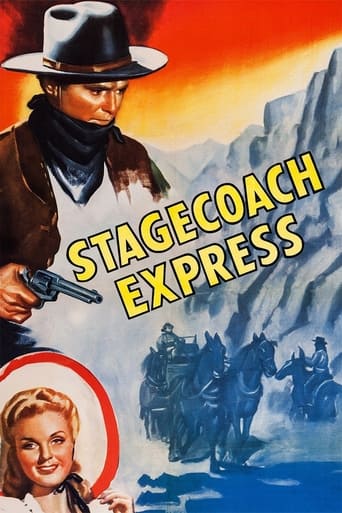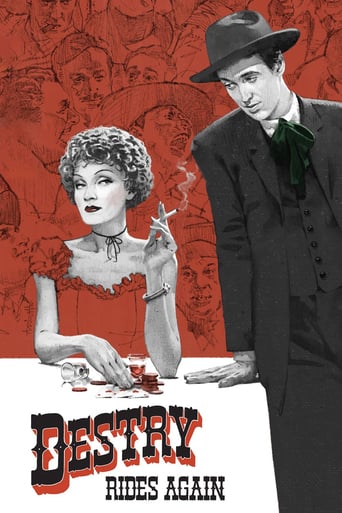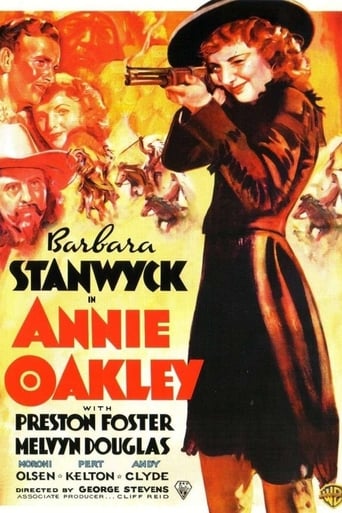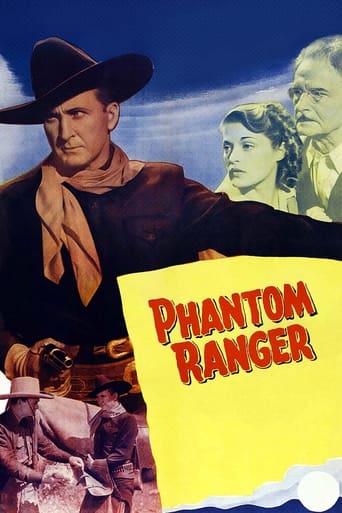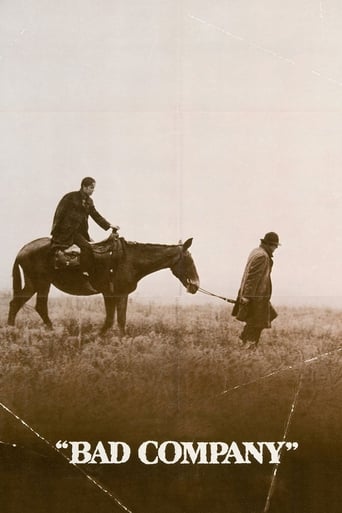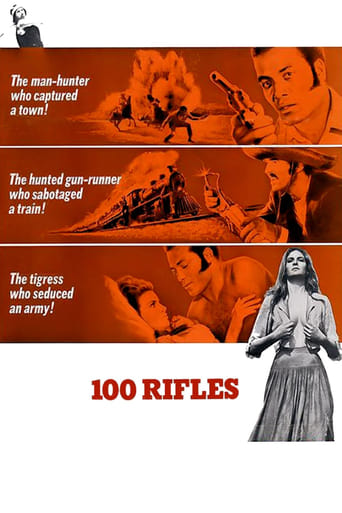Ride the High Country (1962)
An ex-lawman is hired to transport gold from a mining community through dangerous territory. But what he doesn't realize is that his partner and old friend is plotting to double-cross him.
Watch Trailer
Cast


Similar titles
Reviews
Sadly Over-hyped
The film makes a home in your brain and the only cure is to see it again.
The acting in this movie is really good.
The film may be flawed, but its message is not.
This is an overlooked classic Western that helps cement director Sam Peckinpah's career. Down and out, strapped for cash, two former lawmen Steve Judd (Joel McCrea) and Gil Westrum (Randolph Scott) are hired by a bank to deliver a huge amount of gold from a mining camp in the high Sierras down to the bank. More or less swan songs for McCrea and Scott as their long lasting careers wane. To be exact, this is the final effort of Scott. The two old friends wrestle with ethics as one wants to take the proceeds and run, while the other intends to finish the assignment agreed to. The action scenes are full of realism and the two stars turn in memorable performances. The sweeping vistas are terrific.Rounding out the cast: Mariette Hartley, R.G. Armstrong, Ron Starr, James Drury, L.Q. Jones and Warren Oates.
This is an important western because the subplot of a young woman's life in the remote west is addressed. At this time many women were looked upon as chattel. Here a young woman escapes farm life with an overbearing religious father who beats her, to flee into marriage with a redneck miner who beats her and plans to share her with his brothers and father. The lead character played by veteran Joel McCrea is trying to earn an honorable living because there is no pension or social security benefits for him to rely on. Randolph Scott is trying to score some easy dough to last during his retirement. A fine movie about morality, honor, and duty.
At one point about two-thirds of the way into Ride the High Country, Elsa practically spells out the point of the movie: we're taught by our elders that there's good and evil, black and white, but the world isn't that simple (Joel McCrea responds that it should be simpler but it isn't). This is a magnificent Western for its story and character, but also for something more: in the same year that John Ford made The Man Who Shot Liberty Valance, another twist in the screws of the genre that the director helped to innovate, Peckinpah made a movie that was both deeply footed in the past (the actors Scott and McCrea were veterans in the industry and had acted together many times, often in sort of stock genre films that have likely not aged well) while also looking ahead to the future. What happens when you don't always have such sharply defined lines between good and evil? What happens if the person you think you trust has a crappy family or lives in a town that's not exactly savory, or on the flipside the person you don't quite trust wins it back, somehow? What happens if there's a double-cross? The world's much more complicated, despite such trusty and classically styled old-timers like the ones here.It's a film with its focus on two things but they merge together very well: Scott and McCrea are old friends who team up, along with a young hot-shot to go to a small town and bring back some gold and profits (nowhere near what McCrea's Judd expected - more like $20,000 instead of $200,000, such is the way of life sometimes post-1849), and along the way they on their trek they go to a farm tended by a not-comically-but-still-extremely religious man named Knudsen and his daughter Elsa. This is where the emotional component sort of kicks in; she isn't allowed by her strict father to talk to men he sees unfit, which means basically anyone, even as she intends to marry a young man named Billy Hammond who has stopped by a few times.Against his wishes she leaves and tags along with the other men. Ron Starr plays the young cowboy, his first name is Heck, and they take a liking to each other until he takes things too far one night in an almost-rapey sort of way. When she gets to the small mining town - complete with whorehouse, of course - and meets again with the man she intends to marry, she doesn't seem to understand his brothers are part of the package (this includes future Peckinpah regulars like Warren Oates in a wildly funny performance and LQ Jones). And then there's the wedding night.The plot involving the gold isn't unimportant here, and to be sure a major reveal upends things for the audience, but like in many other films that the director made (and extremely well), he is more fascinated by behavior, how the brothers interact with one another as human cretins, like in being filthy and unkempt and, well, unable to keep it in their pants around a woman like Elsa especially when the booze kicks in. This is a movie where a wedding scene includes perhaps the greatest wedding speech by the officiator I've ever seen (try and find it online, it's actually thoughtful and philosophical and you'll want it for your wedding), and then in the next beat a whirlwind of Elsa being taken this way and that by Billy's drunken louts. What is she to make of all of this? Could she have dealt with this had she grown up in that town and not been so sheltered? What are the gray areas in this world? Peckinpah gets a good contrast with the movie's questions of morals whether it's with a young man and a young woman who may be in love (and the young man in question, Starr as the sort of weak link in the cast though he's not bad as this would-be-f***-up of a love interest), or with these two grizzled men who have lived full lives and gone through many ordeals together and separate. The director really loves just watching these two guys on horses talking about how things used to be but how things also are now, and yet makes the drama that comes up between them feel real. At the same time the script brings up a lot of moments of clever dialog - Scott delivers it a little more dryly than McCrea, but this works - so that you're having a good time more often than not... then when a dramatic revelation happens, or we see the outcome of this disastrous wedding Elsa takes part in, it makes a more sizable impact.Themes of loyalty, trust, honor, respect to women, and what it means to face people with guns head on get explored here in an entertaining and exciting and funny script, and here we see this filmmaker take shape with the first, shall one say, "true" Peckinpah film. Though certainly not bloody like future films - it's still for MGM before the code broke down, and it's almost surprising how much is shown of the prostitutes in the film - it's got plenty of tremendous gun-fights, and the ending has bad-ass written in ballsy gunsmoke. It's among the director's finest, and it gives a lot to do for McCrea (who I like her as much as I do in Sullivan's Travels) and Scott, who dig in to a script with a lot of potential and take it to another level. Its a soulful film about what it means to be IN this place and time and what lines are drawn for good men, not so good men, and judges who get drunk after performing wedding ceremonies.
Very disappointing film with Joel McRea and Randolph Scott showing that years had passed from their glory days.You would think from the premise that the film was about getting the shipment of gold safely to where it belonged. Instead, we get bogged down with a girl, Mariette Hartley, who flees from her overly zealous pious father and runs with the crew and a young man intended, to meet up with and marry the man of her dreams, James Drury. Instead, she weds a drunken Drury and the film is devoted to her getting away from Drury and his awful brothers.The gold shipment is almost a forgotten entity here if it weren't for the fact that one of our heroes is prepared to steal the gold for himself.

